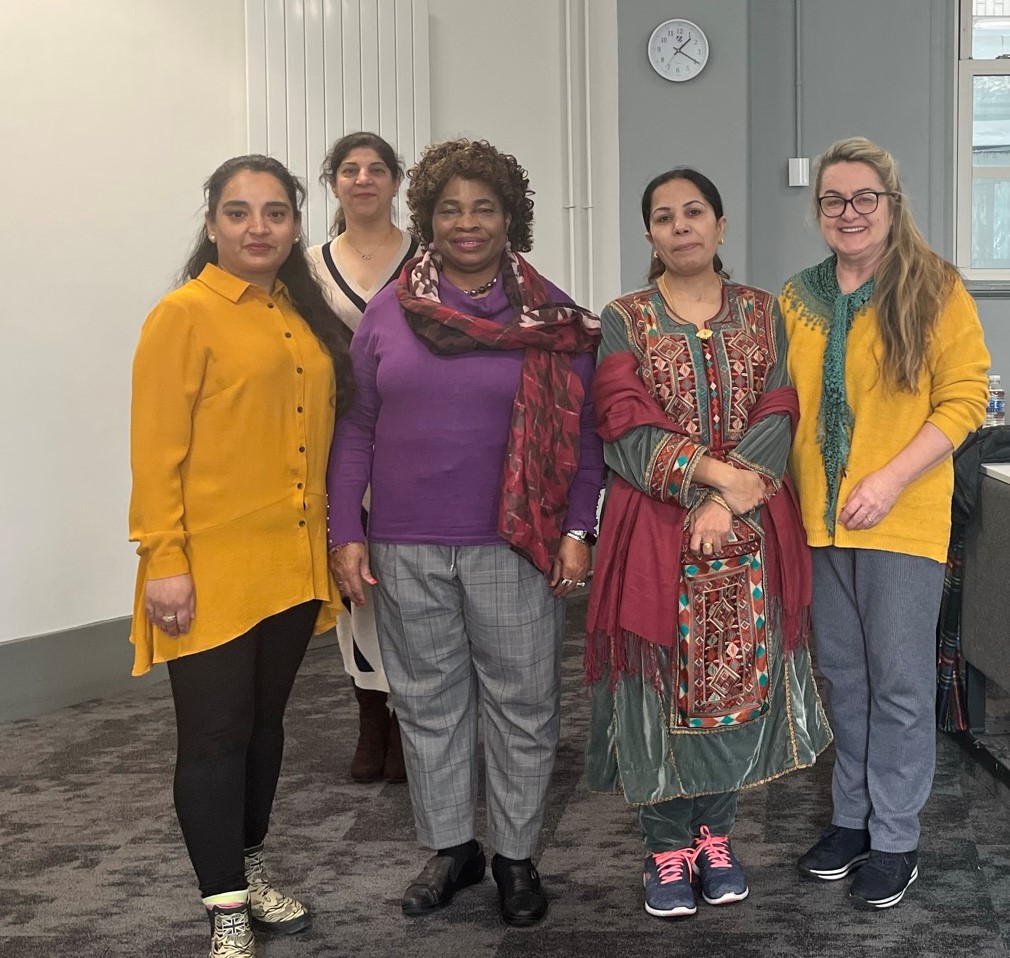Breaking the Bias for International Women’s Day
ARC NWC Public Advisers come together to Break the Bias for International Women’s Day 2022

International Women’s Day is celebrated on the 8th of March each year, it is a dedicated day for everyone to honour and celebrate the accomplishments of women throughout history. International women’s day has occurred for well over a century, with the first gathering in 1911 supported by over a million people. The day identifies and recognises the successes of women from around the globe uniting different backgrounds and cultures to battle for a gender equal world and women’s rights.
Each International Women’s Day has a theme, and this year the theme is Break the Bias, with the official message being:
“Imagine a gender equal world.
A world free of bias, stereotypes, and discrimination.
A world that is diverse, equitable, and inclusive.
A world where difference is valued and celebrated.
Together we can forge women’s equality.
Collectively we can all #BreakTheBias.”
A selection of public advisers from National Institute for Health Research’s Applied Research Collaboration North West Coast (ARC NWC), have come together to celebrate this special day with some clear messages! They have chosen to enter into the spirit of this theme and highlight issues surrounding domestic violence.
ARC NWC Public Involvement Manager Selina Wallis, said: “The North West region has the third highest domestic abuse rate per 1000 population in the country. In England and the estimated total costs of domestic violence are £5.5bn a year.
Due to the figures in our region a group of our public advisers told us they felt strongly that reducing domestic violence was a priority for the North West population.
One in particular, Dorcas, who is the ARC NWC’s Public Adviser Co-Lead for the Health and Care across the Life Course theme, is now leading the involvement of ARC NWC in the national ARCs work programme called National Priorities Programme for Adult Social Care and Social Work. This involves nine ARCs around the UK and is being led by ARC Kent Surrey and Sussex.”
Dorcas said: “The last few weeks I have been looking into research into domestic violence which will be Public Adviser led. I have set up a group called the Domestic Violence Research Group with the support of the ARC NWC staff and other internal public advisers.
We have met twice and at our last meeting we decided to address the need for more research in the area through the national priorities programme for adult and social care work and we are awaiting feedback on our idea.
It is great to be suggesting schemes for national consideration and discovering the shared benefits of collaborating at a national level, not just locally. It is in its early stages but has a lot of support.”
In light of the newly formed ARC NWC Domestic Violence Research Group the women have also joined together with local choirmaster Ella Spiers, to learn and perform a song called ‘I am not free’.
The original song was written by Audre Lorde with original music by Penny stone. Audre Lorde was an American writer, feminist, womanist, librarian, and civil rights activist. She was a self-described “black, lesbian, mother, warrior, poet,” who “dedicated both her life and her creative talent to confronting and addressing injustices of racism, sexism, classism, and homophobia.
Here are some of the ARC NWC’ Public Advisers singing ‘I am not Free’
Dorcas adds: “Many people have lived experience, either themselves or through friends and family, of domestic abuse. We plan to continue this work in our region by creating a research priority setting workshop with a focus on lived experience and make a valuable contribution to the national programme.”
Glossary.
Please be aware that domestic abuse is not limited to physical violence and can include a range of abusive behaviours. It can also be experienced as repeated patterns of abusive behaviour both on and offline to maintain power and control in a relationship. The Domestic Abuse Act 2021 defines domestic abuse as any incident or pattern of incidents between those aged 16 years and over who:
• are a partner
• are an ex-partner
• are a relative
• have, or there has been a time when they each have had, a parental relationship in relation to the same child
The Domestic Abuse Act 2021 outlines the following behaviours as abuse:
• physical or sexual abuse
• violent or threatening behaviour
• controlling or coercive behaviour
• economic abuse
• psychological, emotional, or other abuse
The Domestic Abuse Act 2021 recognises children aged under 18 years who see, hear, or experience the effects of the abuse, as a victim of domestic abuse, if they are related or have a parental relationship to the adult victim or perpetrator of the abuse.
There is a range of risk factors for an individual becoming a victim of domestic violence, and the potential to become a victim increases when a combination of risk factors occurs. Therefore health inequality exists for victims of domestic abuse. The National Institute of Health and Clinical Excellence have identified that the risk of experiencing domestic violence or abuse is increased if someone:-
• is female
• has a long term illness or disability
• is aged 16-24 (women) or 16-19 (men)
• is pregnant or has recently given birth – the greatest risk is for teenage mothers and during the period just after a woman has given birth
• has a mental health problem
• is a woman who is separated
• is lesbian, gay, bisexual, or trans
• is exposed to alcohol or drug misuse.
Links
• arc-kss.nihr.ac.uk/npp-adult-social-care-social.
• https://www.internationalwomensday.com/
• https://arc-nwc.nihr.ac.uk/wp-content/uploads/2022/03/family-and-domestic-violence-priority-setting-partnership-project-report.pdf
• http://driveproject.org.uk/wp-content/uploads/2020/01/Call-to-Action-Final.pdf
To follow and find information about this year’s international women’s day or get your voice hear you can use the #BreaktheBias hashtag to follow or add to the conversation.
